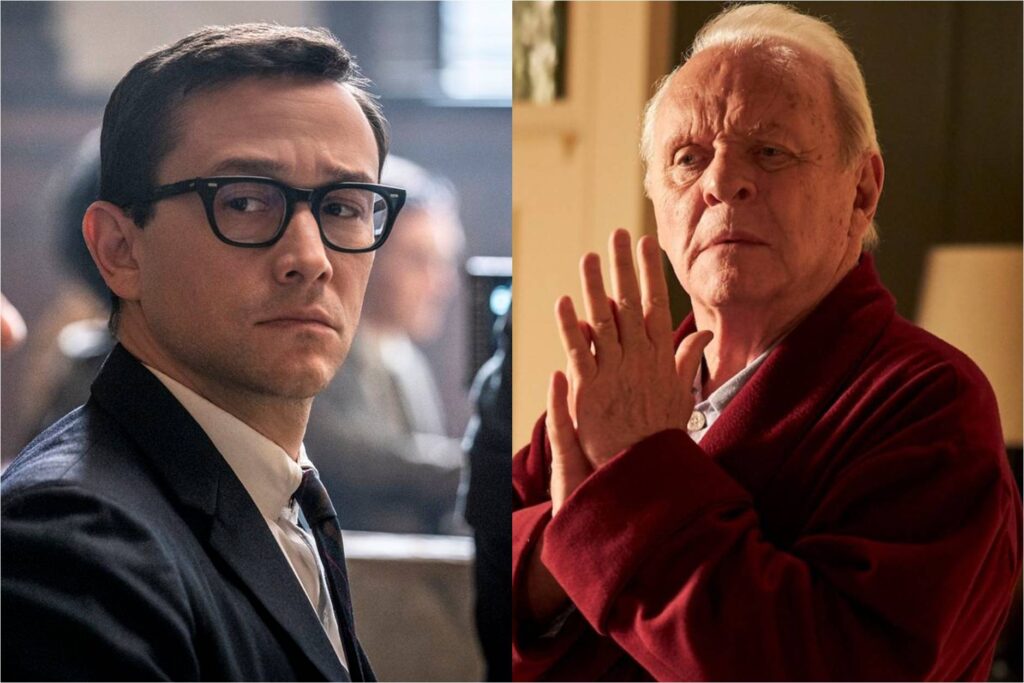
Almost done! Thus far in our weeklong run-up to the Oscars, we’ve looked at the lead actors, their supporting counterparts, the big techies, and the little ones. This morning, we’re analyzing the screenplays before we return this afternoon for a look at the big prizes.
Let’s start with the weaker of the two categories:
BEST ADAPTED SCREENPLAY
NOMINEES
Borat Subsequent Moviefilm—Sacha Baron Cohen et al.
The Father—Christopher Hampton and Florian Zeller
Nomadland—Chloé Zhao
One Night in Miami—Kemp Powers
The White Tiger—Ramin Bahrani
WILL WIN
The general rule here is to defer to Best Picture nominees. In fact, the last time a movie won this category without receiving a corresponding nomination in the Best Picture field was 1998, when Gods and Monsters defeated The Thin Red Line; the last time it happened when competing against multiple Best Picture nominees was [gulp] 1952, when The Bad and the Beautiful pipped both High Noon and The Quiet Man. Esoteric stats like that only carry so much meaning, but if you’re picking either Borat Subsequent Moviefilm or The White Tiger, maybe don’t bet your life savings. Honestly, a win for One Night in Miami isn’t inconceivable, given that it’s a very talky production. Still, this shapes up as a showdown between The Father and Nomadland.
Of those two, I’m guessing Nomadland, though my confidence level is low. I don’t think the frontrunner’s coattails are especially long this year (which is why I’m picking against it in both Best Cinematography and Best Actress). And you could certainly argue that The Father, with its looping structure and unsettling revelations, is a more visibly written picture. But this feels like one category where the favorite can flex its muscle a bit, and where voters might perfunctorily check off their preferred movie as opposed to weighing the merits of the relative screenplays. That should be enough to give Zhao her first Oscar of the night (though not her last).
SHOULD WIN
I always feel guilty about opining on this category, since I’m hardly ever familiar with the source material at issue. Still, I know enough about Borat’s improvisational method to know that its nomination in this category is absurd. As for One Night in Miami and The White Tiger, neither is able to transcend its limitations; the former is boxed in by its own staginess, while the latter recalls better-told rags-to-riches stories.
As for Nomadland, Zhao deserves credit for taking a non-fiction book and giving it a dramatic core. Still, I’m taking The Father. On the SportsAlcohol.com podcast, we discussed whether The Father is primarily a triumph of writing or design/direction. Weirdly, I think it’s kinda both. The film’s editing and production design contribute immeasurably to its unnerving, horror-adjacent atmosphere. But its conceptual achievement is really one of story, and Zeller and Hampton do a terrific job of translating a play and lending it cinematic vitality and urgency.
MOVIEMANIFESTO’S BALLOT
Bad Education—Mike Makowsky
Emma—Eleanor Catton
The Father—Christopher Hampton and Florian Zeller
The Midnight Sky—Mark L. Smith
Unpregnant—Rachel Lee Goldenberg et al.
Bad Education takes an ugly tale of bureaucratic malfeasance and imbues it with elements of tragedy. If Emma hews too closely to the Jane Austen novel, it does so with pace and wit. The Midnight Sky telegraphs its twists without diluting their power. Unpregnant smuggles progressive themes inside a warm and buoyant package.
MovieManifesto’s winner: The Father—Christopher Hampton and Florian Zeller.
BEST ORIGINAL SCREENPLAY
NOMINEES
Judas and the Black Messiah—Will Berson and Shaka King
Minari—Lee Isaac Chung
Promising Young Woman—Emerald Fennell
Sound of Metal—Darius Marder and Abraham Marder
The Trial of the Chicago 7—Aaron Sorkin
WILL WIN
Well, our “pick the Best Picture nominee” strategy appears to have hit a snag. Still, I suspect that this race will come down to Promising Young Woman versus The Trial of the Chicago 7. The latter is obviously more dialogue-heavy, and its parade of fast-paced quips will surely appeal to a sizable bloc of Academy voters. Still, Promising Young Woman is the more provocative work, bristling with ideas and ingenuity as well as shards of acid humor. Its late swerves and bold topicality should give it the edge.
SHOULD WIN
I like both Judas and the Black Messiah and Minari just fine, but the storytelling feels muddled in the former and overly deliberate in the latter. The restraint and patience of Sound of Metal is more effective, even if the film itself is more memorable for its performances and technique. Promising Young Woman’s bracing screenplay makes my own ballot, but the Sorkin fan in me is helpless to resist Chicago 7’s litany of jokes, insults, stirring speeches, and grammatical revelations.
MOVIEMANIFESTO’S BALLOT
Palm Springs—Andy Siara
Promising Young Woman—Emerald Fennell
Straight Up—James Sweeney
Soul—Pete Docter, Mike Jones, and Kemp Powers
The Trial of the Chicago 7—Aaron Sorkin
Palm Springs takes a classic conceit and revitalizes it with witty ideas and sharply drawn characters. Straight Up’s comic banter is downright Sorkinian. Soul is refreshingly thought-provoking for an animated feature, with solid fart jokes to boot.
MovieManifesto’s winner: The Trial of the Chicago 7—Aaron Sorkin.
Honorable mention: Happiest Season—Clea DuVall and Mary Holland; Never Rarely Sometimes Always—Eliza Hittman; Sorry We Missed You—Paul Laverty.
Coming later today: Best Director and Best Picture.
Jeremy Beck is the editor-in-chief of MovieManifesto. He watches more movies and television than he probably should.
